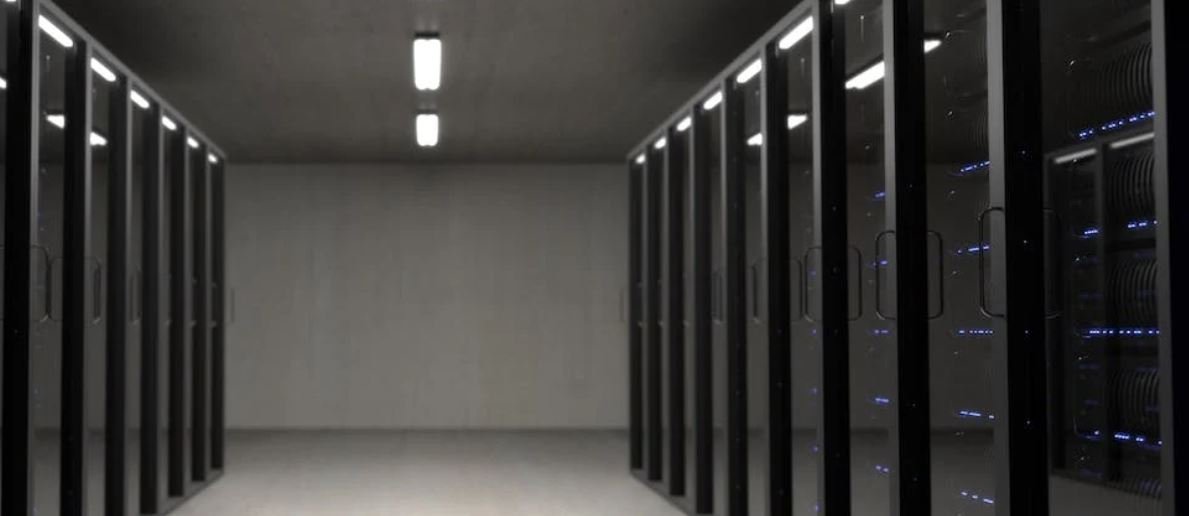Article One, Section 8
The United States Constitution is a document that lays out the framework for the government of the United States. Within the Constitution, Article One, Section 8 is a crucial section that grants specific powers to the United States Congress. Understanding the content and significance of Article One, Section 8 is key to comprehending the authority and responsibilities of the legislative branch of the U.S. government.
Key Takeaways:
- Article One, Section 8 grants specific powers to the United States Congress.
- The section outlines the authority of Congress in areas such as taxation, defense, and commerce.
- Article One, Section 8 provides the necessary framework for the legislative branch of the U.S. government.
Article One, Section 8 begins by stating that “The Congress shall have Power…” followed by a list of enumerated powers that Congress holds. These powers include the authority to collect taxes, borrow money, regulate commerce, establish a national defense, and more. The section empowers Congress to make laws in the areas crucial for governing the country and providing for its citizens’ welfare.
- The enumeration of these powers allows for a system of checks and balances between the legislative, executive, and judicial branches of government.
- It is remarkable to see the extent of congressional authority laid out in Article One, Section 8.
One interesting power granted to Congress in Article One, Section 8 is the ability to regulate commerce. This power, known as the Commerce Clause, has been the subject of significant debate and interpretation throughout history. The Commerce Clause has been used as the basis for legislation regarding trade, business, and other economic activities, and has played a crucial role in shaping the U.S. economy.
| Power | Description |
|---|---|
| Taxation | Congress has the power to levy and collect taxes to fund government activities. |
| Commerce | Congress can regulate interstate and international commerce. |
| Defense | Congress can provide for the national defense and raise and support the military. |
Another noteworthy power in Article One, Section 8 is the ability of Congress to establish post offices and post roads. This power highlights the importance of communication and transportation infrastructure in the early days of the United States and demonstrates the foresight of the framers of the Constitution.
- The establishment of post offices and post roads helped to connect the nation and facilitate communication.
- It is fascinating to consider the significance of this provision in the context of the time period.
Article One, Section 8 additionally grants Congress the power to declare war, coin money, and establish a system of patents and copyrights. These provisions exemplify the broad reach of the legislative branch and its ability to shape various aspects of American society.
| Power | Description |
|---|---|
| Declare War | Congress has the exclusive authority to initiate war. |
| Coin Money | Congress can regulate the currency and coinage of the United States. |
| Patents and Copyrights | Congress can promote innovation and protect intellectual property rights. |
Article One, Section 8 of the United States Constitution serves as a pivotal part of the country’s foundational legal framework. It provides Congress with the necessary powers to govern the nation effectively and encompasses various aspects that shape the lives of American citizens.
Get to Know Article One, Section 8
- Article One, Section 8 outlines the authority and responsibilities of the United States Congress.
- The section grants Congress specific powers in areas such as taxation, defense, commerce, and more.
- Understanding Article One, Section 8 is crucial to comprehend the workings of the U.S. government.
In conclusion, Article One, Section 8 of the United States Constitution is a cornerstone of the powers and authorities granted to the United States Congress. It outlines the areas in which Congress can act and make laws, providing a framework for the functioning of the legislative branch. The provisions within this section have shaped the nation’s history and continue to influence its governance today.
Common Misconceptions
Article One, Section 8
The first common misconception people have about Article One, Section 8 is that it grants unlimited powers to the federal government. However, this is not the case. The section lists the specific powers given to Congress, the legislative branch of the federal government. These powers include the authority to collect taxes, regulate commerce, and establish a system of naturalization. It is important to note that the powers not mentioned in this section are reserved for the states or the people.
- Article One, Section 8 grants limited powers to the federal government.
- The section lists specific powers given to Congress.
- Powers not mentioned in this section are reserved for the states or the people.
Another misconception is that Article One, Section 8 allows the federal government to control every aspect of people’s lives. While the section outlines the federal government’s authority over certain areas, such as commerce and defense, it does not grant unlimited control. The Constitution also includes the Tenth Amendment, which reserves powers not delegated to the federal government to the states and the people. This ensures a balance of power between the federal government and the individual states.
- Article One, Section 8 does not grant the federal government total control over people’s lives.
- The Tenth Amendment reserves powers not delegated to the federal government to the states and the people.
- There is a balance of power between the federal government and the individual states.
Some people mistakenly believe that Article One, Section 8 gives Congress the power to make any law it deems necessary and proper. While the section does state that Congress has the power to make laws that are necessary and proper for carrying out its enumerated powers, this does not mean the government can pass any law it wishes. The necessary and proper clause, also known as the elastic clause, is meant to give Congress flexibility in implementing its enumerated powers, not to expand its authority beyond those powers.
- Article One, Section 8 does not give Congress unlimited power to make any law.
- The necessary and proper clause is meant to give flexibility in implementing enumerated powers.
- The elastic clause does not expand Congress’ authority beyond its enumerated powers.
Another misconception is that Article One, Section 8 grants the federal government the power to infringe on individuals’ rights. In reality, the section includes explicit protections for individual rights. For example, it grants Congress the power to promote the progress of science and useful arts by securing for limited times to authors and inventors the exclusive right to their respective writings and discoveries. This provision protects intellectual property rights, which are essential for fostering creativity and innovation.
- Article One, Section 8 includes explicit protections for individual rights.
- One such protection is the grant of exclusive rights to authors and inventors.
- This provision promotes creativity and innovation by protecting intellectual property.
Lastly, it is often mistakenly believed that Article One, Section 8 is outdated and no longer relevant in modern times. However, the section provides a framework for the federal government’s powers that is still applicable today. While societal and technological advancements have changed the way certain powers are exercised, the underlying principles and structure remain relevant. Article One, Section 8 continues to be the basis for legislative powers and serves as a guide for determining the scope of federal authority.
- Article One, Section 8 provides a framework for the federal government’s powers.
- Societal and technological advancements may change the exercise of these powers, but the principles and structure remain relevant.
- The section is the basis for legislative powers and guides the scope of federal authority.
Executive Powers
Article One, Section 8 of the United States Constitution defines the powers of Congress. One significant power is the ability to shape and regulate international trade. The following table presents key data on the value of U.S. imports and exports from 2015 to 2020.
| Year | Value of Imports (in billions) | Value of Exports (in billions) |
|---|---|---|
| 2015 | 2,742 | 2,277 |
| 2016 | 2,712 | 2,211 |
| 2017 | 2,895 | 2,329 |
| 2018 | 3,116 | 2,499 |
| 2019 | 2,567 | 2,478 |
| 2020 | 2,568 | 2,130 |
Population Growth
This table showcases the population growth in various countries over a 10-year period, from 2010 to 2020. Understanding population growth trends is crucial for lawmakers to address the needs of their respective constituencies and plan for the future.
| Country | 2010 Population (in millions) | 2020 Population (in millions) | Population Growth Rate (2010-2020) |
|---|---|---|---|
| China | 1,341 | 1,396 | 4.1% |
| India | 1,210 | 1,366 | 12.9% |
| United States | 309 | 331 | 7.1% |
| Indonesia | 242 | 273 | 12.8% |
| Pakistan | 176 | 225 | 27.8% |
Education Spending
Investing in education is essential for the development of a society. This table showcases the top five countries with the highest government expenditure in education as a percentage of GDP in 2020.
| Country | Government Expenditure in Education (% of GDP) |
|---|---|
| Norway | 6.8% |
| New Zealand | 6.6% |
| Denmark | 6.5% |
| Australia | 6.4% |
| Sweden | 6.3% |
Global Energy Sources
The world’s energy sources are rapidly evolving. This table presents the percentage of global energy consumption by source in 2010 and 2020.
| Energy Source | 2010 (%) | 2020 (%) |
|---|---|---|
| Fossil Fuels | 86.2% | 80.3% |
| Renewables | 7.9% | 11.2% |
| Nuclear | 6.0% | 8.5% |
Gender Representation in Politics
Ensuring gender equality in political representation is vital for inclusive governance. This table presents the percentage of women in national parliaments of select countries in 2020.
| Country | Percentage of Women in Parliament |
|---|---|
| Rwanda | 61.3% |
| Cuba | 53.2% |
| Sweden | 47.3% |
| Canada | 39.4% |
| United Kingdom | 34.1% |
Global Internet Users
The internet has revolutionized information access and communication. This table displays data on the number of internet users worldwide from 2010 to 2020.
| Year | Number of Internet Users (in billions) |
|---|---|
| 2010 | 1.97 |
| 2012 | 2.49 |
| 2014 | 2.92 |
| 2016 | 3.42 |
| 2018 | 4.13 |
| 2020 | 4.75 |
Global Poverty Reduction
Eradicating poverty is a global objective. This table presents the decrease in the percentage of people living in extreme poverty between 1990 and 2019.
| Region | 1990 (%) | 2019 (%) |
|---|---|---|
| East Asia & Pacific | 60.2% | 4.1% |
| South Asia | 51.7% | 13.4% |
| Sub-Saharan Africa | 54.3% | 41.1% |
| Middle East & North Africa | 7.5% | 1.4% |
Military Expenditure
Military spending holds significant implications for global security and economic dynamics. This table depicts the top five countries by military expenditures in 2020.
| Country | Military Expenditure (in billions USD) |
|---|---|
| United States | 778 |
| China | 252 |
| India | 72.9 |
| Russia | 61.7 |
| United Kingdom | 59.2 |
Human Development Index
The Human Development Index (HDI) measures overall human well-being by examining factors such as life expectancy, education, and income. This table showcases the top five countries with the highest HDI in 2020.
| Country | HDI Score |
|---|---|
| Norway | 0.957 |
| Switzerland | 0.955 |
| Ireland | 0.955 |
| Germany | 0.947 |
| Hong Kong, China (SAR) | 0.949 |
In summary, Article One, Section 8 outlines the powers of Congress, which include the regulation of international trade, appropriations, and the ability to levy taxes. The tables presented in this article provide fascinating insights into various aspects of our global society, ranging from international trade and population growth to education spending and human well-being. Individually, they paint a vivid picture of the world’s evolving dynamics and collectively highlight the interconnectedness of these factors. By examining and understanding these data points, lawmakers and society as a whole can work towards building a brighter and more equitable future.
Frequently Asked Questions
What is Article One, Section 8?
Article One, Section 8 is a section of the United States Constitution that grants Congress the power to make laws.
What powers are granted to Congress under Article One, Section 8?
Congress is granted various powers under Article One, Section 8, including the power to tax, to regulate commerce, to establish post offices and post roads, to declare war, to establish rules for naturalization, and more.
What is the Commerce Clause mentioned in Article One, Section 8?
The Commerce Clause is a clause within Article One, Section 8 that gives Congress the power to regulate commerce among the states.
What are the implications of the Commerce Clause?
The Commerce Clause has been interpreted by the Supreme Court to give Congress broad authority in regulating various aspects of interstate commerce, including economic activities that have a substantial effect on interstate commerce.
Can Congress levy taxes under Article One, Section 8?
Yes, Article One, Section 8 grants Congress the power to levy taxes in order to fund the government and carry out its responsibilities.
Can Congress declare war under Article One, Section 8?
Yes, under Article One, Section 8, Congress has the power to declare war on behalf of the United States.
What is the Necessary and Proper Clause mentioned in Article One, Section 8?
The Necessary and Proper Clause, also known as the Elastic Clause, is a clause within Article One, Section 8 that gives Congress the authority to make laws that are deemed necessary and proper to carry out its other enumerated powers.
What does it mean for a law to be “necessary and proper” under the Necessary and Proper Clause?
For a law to be considered “necessary and proper” under the Necessary and Proper Clause, it must be directly related to the exercise of one of Congress’ enumerated powers and deemed essential to carrying out that power effectively.
Can Congress establish post offices and post roads under Article One, Section 8?
Yes, Article One, Section 8 grants Congress the power to establish post offices and post roads in order to facilitate communication and transportation across the country.
What role does Article One, Section 8 play in the separation of powers?
Article One, Section 8 defines the powers granted to the legislative branch of the federal government, thereby delineating the boundaries of Congress’s authority and ensuring a separation of powers between the three branches of government.



